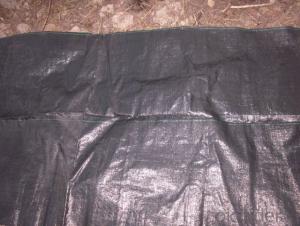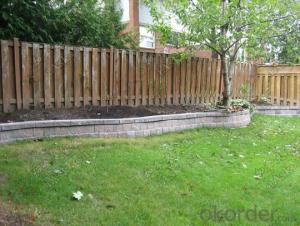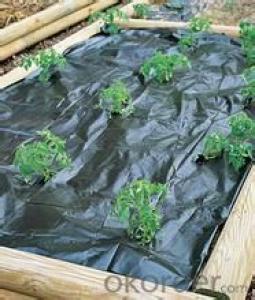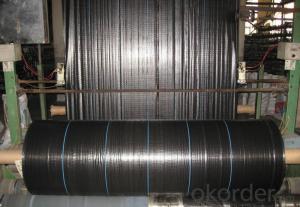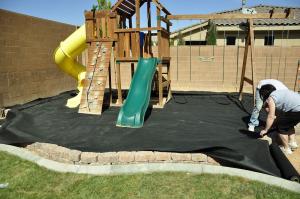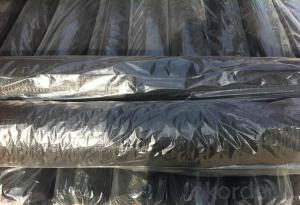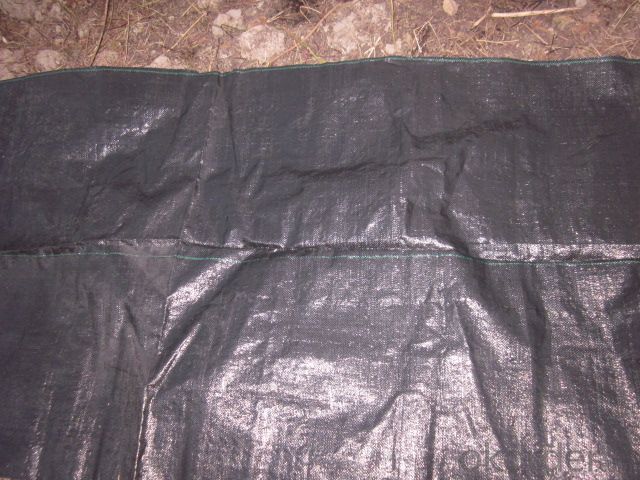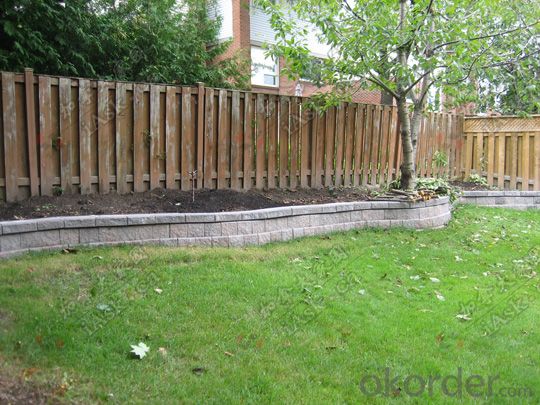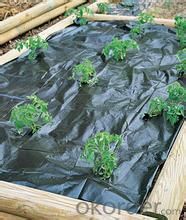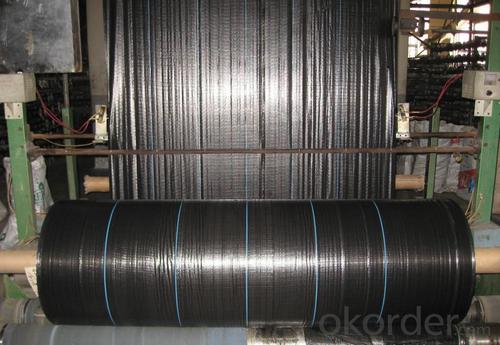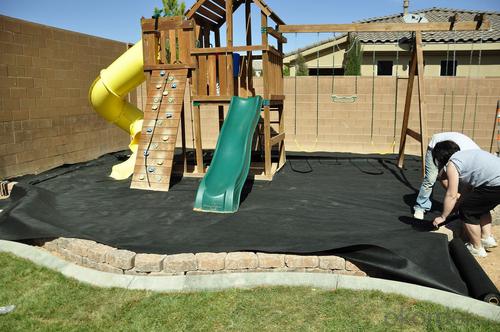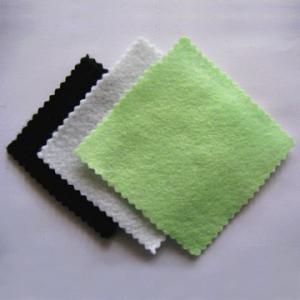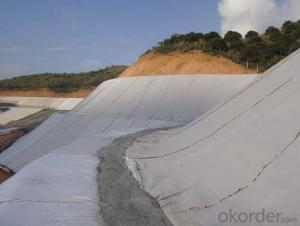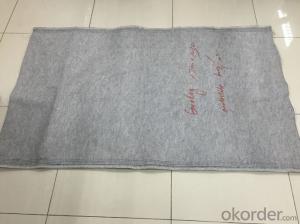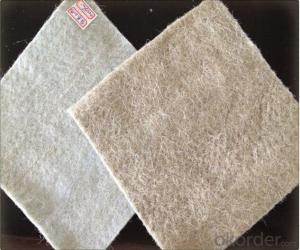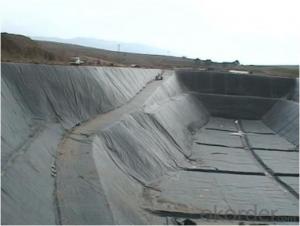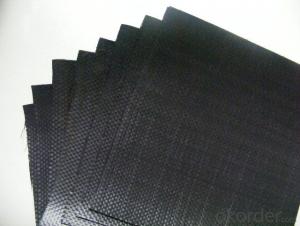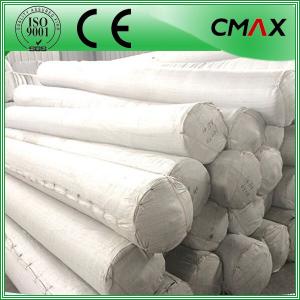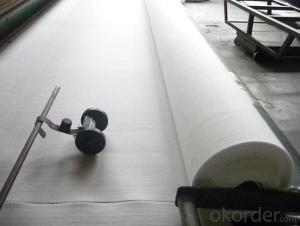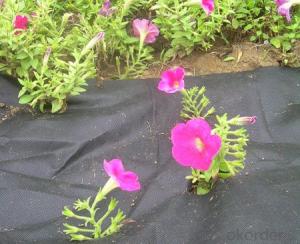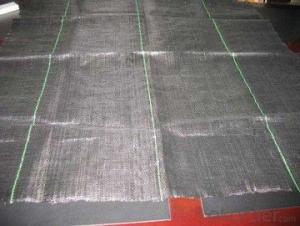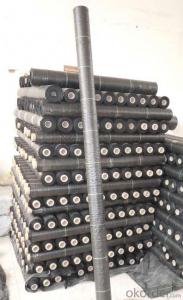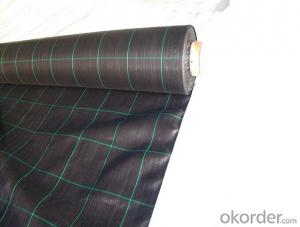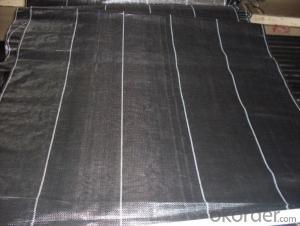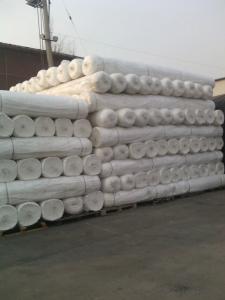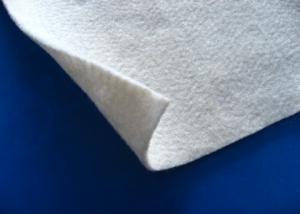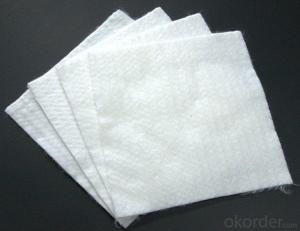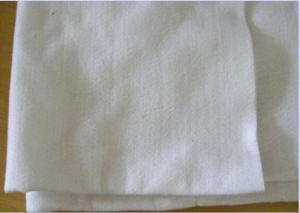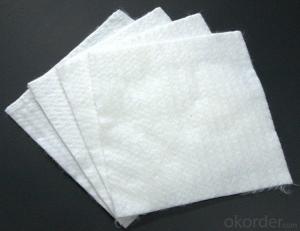Canac Géotextile UV-Cut Spunbonded Polypropylene Nonwoven Fabric for Weed Control Mat
- Loading Port:
- Qingdao
- Payment Terms:
- TT OR LC
- Min Order Qty:
- 500 m²
- Supply Capability:
- 500000 m²/month
OKorder Service Pledge
OKorder Financial Service
You Might Also Like
Product Description
The weed control mat is made of environmentally friendly raw materials, pp woven fabric. It used to prevent the growth of weed, without the use of potentially dangerous chemical sprays or labor intensive hoeing. Once installed, weed mat will continue providing protection for years without maintenance.
They are permeable fabrics, which allow air, water and nutrients to pass through, and designed to block out the sun to reduce photosynthesis and stop weed growth.
Specification
ROPERTY | ASTM TEST METHOD | Minimum Average | Minimum Average |
Mass per unit Area | ASTM D-5261 | 3.0 oz/yd2 | 100 g/m2 |
Grab Tensile | ASTM D-4632 | 145 lbs | 660 N |
Grab Elongation | ASTM D-4632 | 15% | 15% |
Trapezoid Tear | ASTM D-4533 | 55 lbs | 245 N |
Water Flow Rate | ASTM D-4491 | 5 gal/min/ft2 | 203 L/min/m2 |
UV Resistance | ASTM D-4355 | 70% @ 500 hrs | 70% @ 500 hrs |
ROLL DIMENSIONS | |||
Roll Width | 0.9m (3’) | 1.8m (6') | 2.7m (9') |
Roll Length | 91.4m (300’) | ||
Roll Weight | 8kgs (17lbs) | 16kgs (34lbs) | 24kgs (52bs) |
Features
1. Weed suppressant and drainage control landscaping fabric
2. Easy to use, Environmentally friendly
3. Allows water, air and nutrients through, suppressing weeds without the use of chemicals
4. Reduces the level of watering required due to the slower rate of water evaporation
Application
1. Excellent Weed Control
2. Moisture, fertilizers, air reach plants to allow for healthy soil
3. Good water and air permeability
4. Exceptional toughness and strength
5. Durable, tear-resistant; won't rot or mildew
6. Lightweight, easy to install, follows natural ground contours
7. Ideal for use in landscaped beds, under decks and walkways.
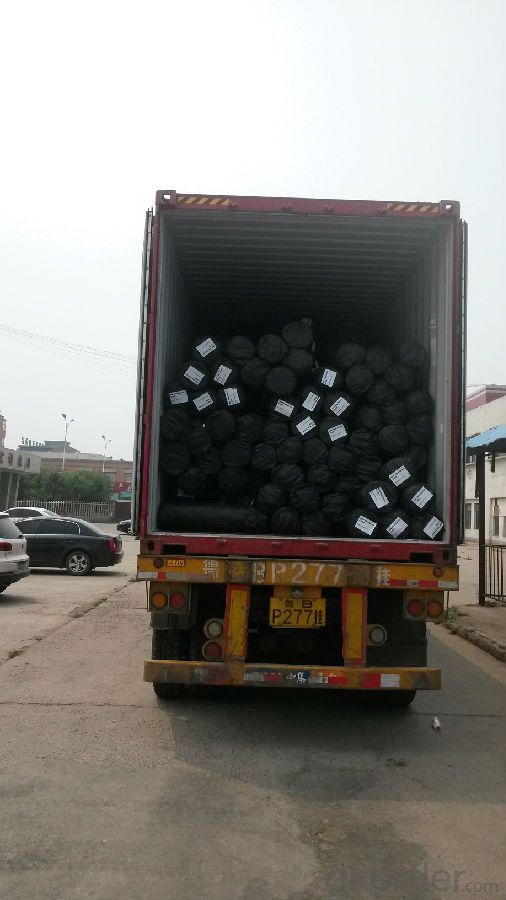
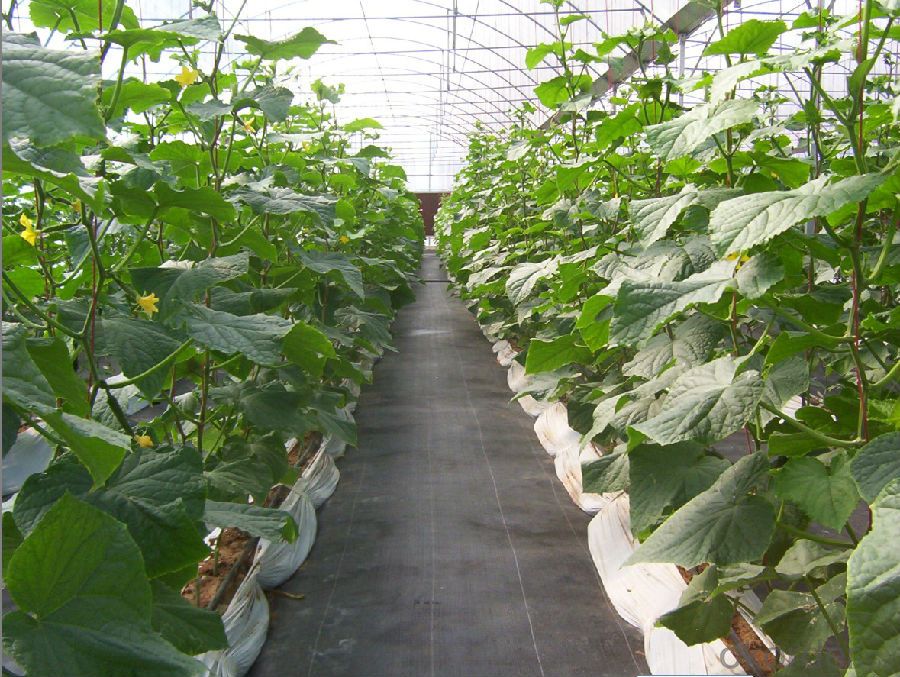
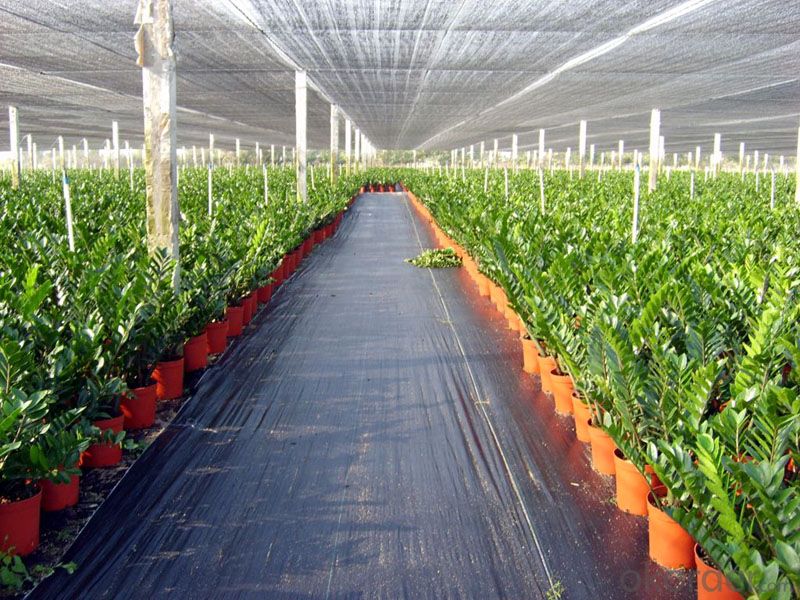
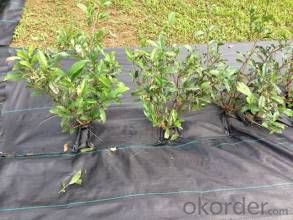
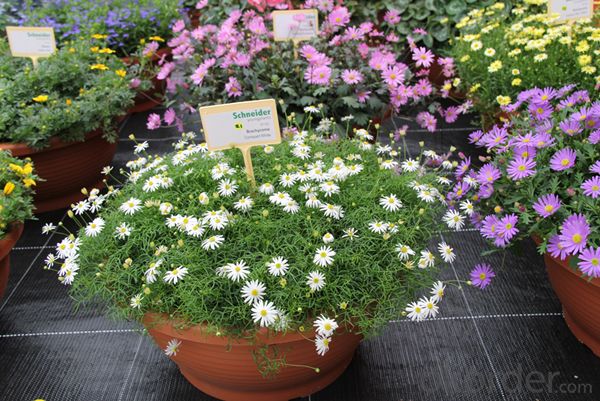
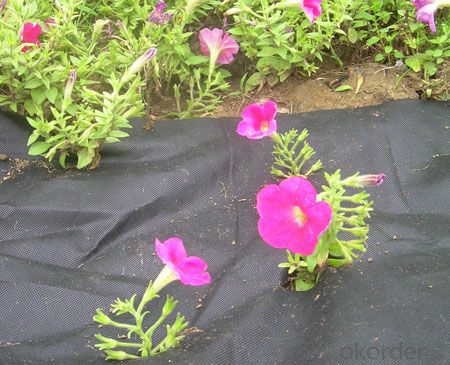
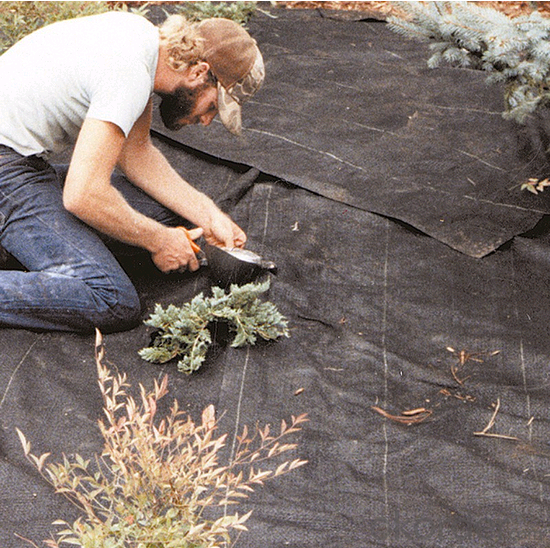
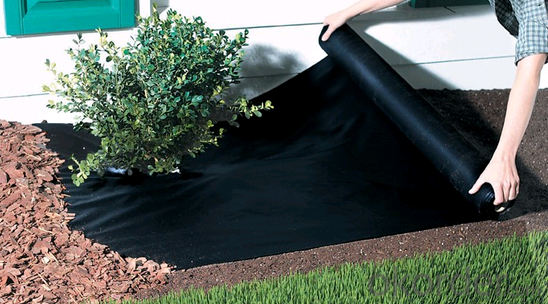
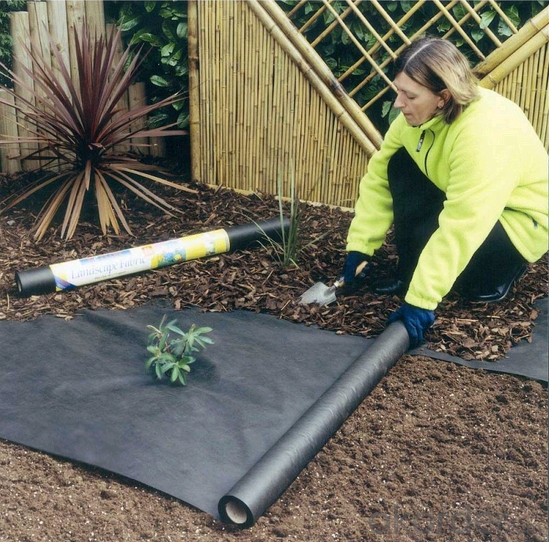
FAQ
1, Samples Policy
Samples are free, but the freight is on customers' charge
Samples will usually be sent out in one day.
2, Prices
As for the prices, we need you to provide us weight, color, width and usage so that
we can quote you best.
3, How to place an order?
Inquiry
Reply
Sample
Contract
Receiving deposit& production
Testing& Packing
Delivery
Receiving
- Q: How do geotextiles help with soil reinforcement in pavement systems?
- Geotextiles provide soil reinforcement in pavement systems by acting as a barrier between different layers of soil, preventing their intermixing and maintaining the stability of the pavement. They distribute the load more evenly, reducing the potential for soil settlement and rutting. Additionally, geotextiles enhance the overall strength and durability of the pavement system by providing tensile strength and preventing the migration of fine particles, ultimately improving the performance and lifespan of the pavement.
- Q: Characteristics of nonwoven geotextiles
- Non-woven geotextile has many advantages: 1) air permeability 2) filterability 3) insulation 4) water absorption 5) waterproof 6) stretch 7) not disheveled 8) feel good, soft 9) light 10) Can be restored 11) without the direction of the fabric 12) compared with the textile production of high productivity, production speed 13) low prices, can be mass production and so on. Disadvantages are: 1) Compared with the textile fabric strength and durability is poor; 2) can not be washed as other fabrics; 3) fiber arranged in a certain direction, so easy to split from the right angle and so on. Therefore, the improvement of the production method has been mainly focused on preventing the improvement of the division.
- Q: Can the nonwoven geotextile be used to hold the soil
- Yes, the soil is not lost on the line, ground watering, if the balcony need to consider good health problems. More vegetables on the issue of "pan rice race vegetables Q & A network
- Q: Can geotextiles be used for reinforcement of railway tracks?
- Yes, geotextiles can be used for reinforcement of railway tracks. Geotextiles are commonly used in railway engineering to improve track stability, reduce settlement, and increase load-bearing capacity. They are placed beneath the track ballast to distribute loads more evenly, prevent ballast contamination, and provide separation and filtration functions. Geotextiles can effectively enhance the performance and longevity of railway tracks.
- Q: What are the different geotextile reinforcement techniques for slopes?
- Some common geotextile reinforcement techniques for slopes include slope stabilization, soil erosion control, and retaining wall construction. These techniques involve the use of geotextile materials, such as woven or non-woven fabrics, to reinforce and strengthen slopes, prevent soil erosion, and provide stability. Methods such as slope facing, slope wrapping, and soil nail reinforcement are employed to enhance the integrity and longevity of slopes in various construction and infrastructure projects.
- Q: Polyester non-woven and geotextile is not the same, what is the difference?
- In simple terms, the number of raw materials is different.
- Q: Geotextile seepage seams how to deal with
- Quick drying cement
- Q: Where can the general use of geotextile water can be bought
- Lingxian geotextile manufacturers, welcome to visit
- Q: Can geotextiles be used for reinforcement of foundations?
- Yes, geotextiles can be used for reinforcement of foundations. Geotextiles are often used as a separation layer between the soil and the foundation, preventing the mixing of different soil layers and enhancing the stability of the foundation. Additionally, geotextiles can also provide reinforcement by distributing the load from the foundation more evenly, reducing settlement and improving overall foundation performance.
- Q: What is the length of the lap when the two-way geogrid is used? What is the geotextile lap length?
- It should be 20cm to 40cm it, geotextiles slightly longer point
Send your message to us
Canac Géotextile UV-Cut Spunbonded Polypropylene Nonwoven Fabric for Weed Control Mat
- Loading Port:
- Qingdao
- Payment Terms:
- TT OR LC
- Min Order Qty:
- 500 m²
- Supply Capability:
- 500000 m²/month
OKorder Service Pledge
OKorder Financial Service
Similar products
Hot products
Hot Searches
Related keywords
